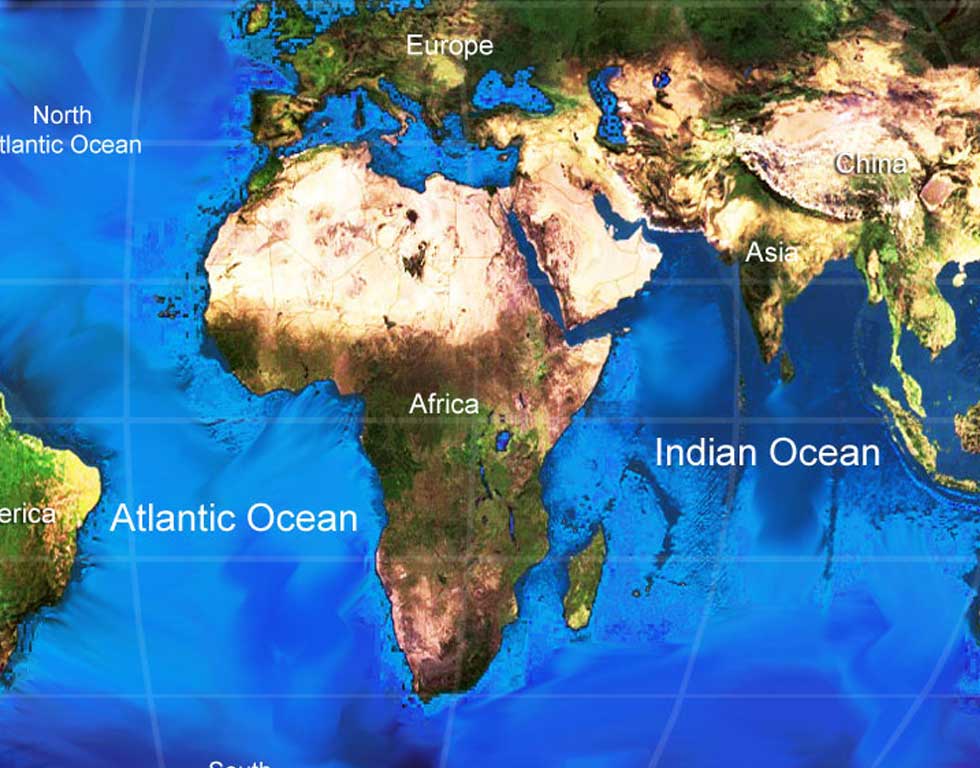[vc_row][vc_column][vc_row_inner el_class=”container”][vc_column_inner][vc_empty_space][la_heading title=”Spring 2020 Newsletter” title_color=”#801d1d” subtitle_color=”#1d2c50″]
Taking Survival to Heart
[/la_heading][vc_empty_space][/vc_column_inner][/vc_row_inner][/vc_column][/vc_row][vc_row el_class=”container”][vc_column][vc_row_inner el_class=”container border-dash”][vc_column_inner el_class=”border-right” width=”1/2″][vc_cta h2=”” shape=”square”]
ICOS Board Exam in Cardio Oncology
The first ICOS Board exam in Cardio Oncology will be available on March 28 at the ACC conference in Chicago AND it will be available online that same day. The fee for the exam is $150 and you must be a member of ICOS to register for the exam. This certification comes on behalf of the ICOS Scientific and Education Committees. A list of exam topics will be provided in the near future.
[/vc_cta][/vc_column_inner][vc_column_inner width=”1/2″][vc_column_text]
[/vc_column_text][/vc_column_inner][/vc_row_inner][vc_empty_space height=”50px”][la_heading title=”Patient Profile: “A family restored”” title_color=”#801d1d”][/la_heading][vc_empty_space][vc_row_inner][vc_column_inner width=”1/2″][vc_single_image image=”8717″ img_size=”full” alignment=”center”][/vc_column_inner][vc_column_inner width=”1/2″][vc_column_text]
Abby Jones Patient Profile
[/vc_column_text][vc_column_text]
Abby has her hands, and her heart full. With three young children she and her husband spend much of their time today like any other young family, running from one activity to the next, tending constantly to the needs of their children. Seven year old Judd is currently into golf and baseball, while the two year old twins Noah and Ellie, like any toddlers, keep mom and dad on high alert and exhausted. But, this family lives with an unusually heightened sense of gratitude for every exhausting moment together.
[/vc_column_text][/vc_column_inner][/vc_row_inner][vc_row_inner][vc_column_inner][vc_empty_space height=”50px”][la_heading title=”International News” title_color=”#801d1d”][/la_heading][vc_empty_space][/vc_column_inner][/vc_row_inner][vc_row_inner][vc_column_inner][la_heading tag=”h3″ title=”Cuba Conference” css=”.vc_custom_1580988481333{margin-bottom: 15px !important;}”][/la_heading][vc_column_text]

Although Cuba is known for its rum, cigars and of course vintage cars, one of the most significant exports for its economy is its medical practitioners. Thousands of doctors, nurses, technicians and research scientists are dispersed every year from this island nation. December 11-14, 2019 was the third annual Cardio-Oncology Symposium in Havana, Cuba, sponsored by the Cuban Societies of Oncology and Cardiology. Attendance increased from about 50 two years ago, to almost 200 participants this year!.
[/vc_column_text][/vc_column_inner][/vc_row_inner][/vc_column][vc_column][vc_row_inner][vc_column_inner][la_heading tag=”h3″ title=”Africa Kickoff” title_color=”#4e5770″][/la_heading][/vc_column_inner][/vc_row_inner][/vc_column][/vc_row][vc_row][vc_column][vc_row_inner][vc_column_inner][vc_column_text]

The first ever Cardio Oncology conference in all of Africa will be held on March 7, 2020 in Durban South Africa. It will be hosted by the newly formed Cardio Oncology Society of Southern Africa (COSOSA). Keynote speakers will include the President of ICOS-Poland, Dr. Sebastian Szmit and Chairman of the ICOS board, Dr. Eric Harrison, along with colleagues from South Africa.
It is a thrilling opportunity to see pioneering work begin on the second largest continent on the planet! ICOS is proud to support and encourage this pioneering work.
[/vc_column_text][/vc_column_inner][/vc_row_inner][vc_row_inner el_class=”container”][vc_column_inner width=”1/2″][vc_single_image image=”5955″ img_size=”full” alignment=”center”][la_heading tag=”h4″ title=”Drs. YT (Trishun) Singh”]
Cardio-Oncology Society of Southern Africa (COSOSA)
[/la_heading][/vc_column_inner][vc_column_inner width=”1/2″][vc_column_text css=”.vc_custom_1568378093620{margin-bottom: 0px !important;}”]
Over the summer, we are thrilled to announce, the first Cardio-Oncology Society on the continent of Africa was organized! The Cardio-Oncology Society of Southern Africa (COSOSA) was organized by Drs. YT (Trishun) Singh (picture below), Ines Buccimazza, and Ria David. COSOSA has been registered as a nonprofit organization and they report, “There is a great need for such a Cardio-Oncology Society in the African Continent, as the two main drivers of mortality, in Southern Africa are, cancer related disease and…cardiovascular and cerebrovascular disease….COSOSA is actively involved in attracting Cardiologists and Oncologists, to play an active role in the society.” The leaders of the new society explain, “We desperately need to collaborate with established Cardio-Oncology centers that already have international recognition, like ICOS.
[/vc_column_text][vc_toggle title=”Read More >>”]The first ever Cardio Oncology conference in all of Africa will be held on March 7, 2020 in Durban South Africa. It will be hosted by the newly formed Cardio Oncology Society of Southern Africa (COSOSA). Keynote speakers will include the President of ICOS-Poland, Dr. Sebastian Szmit and Chairman of the ICOS board, Dr. Eric Harrison, along with colleagues from South Africa.
This is another example of the kind of global development and collaboration that ICOS exists to promote. We wish this new chapter all the best as they begin their work and we look forward to working in close collaboration with them.[/vc_toggle][/vc_column_inner][vc_column_inner][vc_empty_space][/vc_column_inner][/vc_row_inner][la_heading tag=”h3″ title=”The Interview: Sebastian Szmit on the growth of Cardio-Oncology in Poland” title_color=”#af2222″][/la_heading][vc_empty_space][vc_row_inner el_class=”container”][vc_column_inner width=”1/2″][vc_single_image image=”7295″ img_size=”full” alignment=”center”][la_heading tag=”h4″ title=”Sebastian Szmit”]
Leader in Poland
[/la_heading][/vc_column_inner][vc_column_inner width=”1/2″][vc_column_text css=”.vc_custom_1573659522435{margin-bottom: 0px !important;}”]
We recently interviewed one of the leaders of the growing Cardio-Oncology movement in Poland, Sebastian Szmit. Here he reflects on the past and the future of the discipline in Poland.
[/vc_column_text][vc_toggle title=”I. How did you get interested in Cardio-Oncology?”]My dissertation topic was cardio-pulmonary exercise capacity and coronary calcium score in patients with diabetes mellitus. When I was finishing my Ph.D. project I began to develop an interest in the possible role of genomics in cardiology. I wanted to use microarray in the assessment of patients with exercise dyspnea. In 2006, I started to cooperate with oncologists experienced in molecular biology. Quickly I noticed several molecular links between cardiovascular and cancer diseases. It was a nice surprise that my oncology colleagues decided to ask me for cardiology consultations in their cancer patients. My first patients were subjects with arterial hypertension induced by anti-VEGF drugs. I noticed that patients with iatrogenic hypertension can live significantly longer than others. Then of course I had to explain why we observe severe heart failure and even sudden cardiac death in breast cancer patients treated with trastuzumab. In 2007, I had the honor to present my first lecture on cardio-oncology during a congress of the Polish Society of Clinical Oncology. I discussed cardiovascular complications related to anticancer therapy. My efforts contributed to the fact that in 2008 National Consultant of Cardiology – Prof. Grzegorz Opolski met National Consultant of Clinical Oncology- Prof. Maciej Krzakowski and decided to start work on creating joint recommendations on cardiac safety in oncology, especially in breast cancer and lung cancer. In 2009, a group of Polish experts was established, and we started working on a first document. I was appointed an executive secretary. [/vc_toggle][vc_toggle title=”II. What has been your particular area of research in this field?”]A very important area of my observations has been cardiovascular complications of tyrosine kinase inhibitors (TKIs) used in renal cell carcinoma. I cooperated with Prof. Cezary Szczylik, the famous Polish author of some important clinical trials on the efficacy of TKIs. In May 2009, I had the honor to present the lecture on “Cardiovascular Effects” in the session titled “Managing the toxicities of the TKIs” during the Fourth European International Kidney Cancer Symposium taking place in Berlin, Germany. Our Polish experiences have changed the thinking about the prognostic and predictive importance of arterial hypertension in kidney cancer. Since we have proven that patients with arterial hypertension live longer, we have ordered not to reduce the dose of anti-VEGF drugs but focus on optimal antihypertensive treatment.
The next most important moment for my research activity in Poland was an invitation to cooperation with the Polish Lymphoma Research Group (PLRG). My hematology colleagues wanted to perform multicenter academic studies. An evaluation of cardiac safety during anthracyclines-based chemotherapy seemed to be a special interest for their daily practice. Prof. Wojciech Jurczak proposed the founding of a Cardio-Oncology Section of PLRG. For the last few years we have published some excellent papers. We tried to define some optimal algorithms of anticancer therapy in lymphoma patients with cardiovascular diseases. We provided a chance for many patients to receive anticancer treatment despite coexisting cardiovascular disorders.
[/vc_toggle][/vc_column_inner][vc_column_inner][vc_empty_space height=”22px”][vc_toggle title=”III. How has this discipline grown so fast in Poland?”]The development of Cardio-Oncology in Poland was possible thanks to great support from prominent Polish hematologists and oncologists:
– Prof. Maciej Krzakowski (National Consultant in Clinical Oncology) organized some scientific sessions during the congresses of Polish Society of Clinical Oncology
– Prof. Sebastian Giebel (President of Polish Lymphoma Research Group) reserved time for discussion of the cardio-oncology section during each meeting
– Prof. Dariusz Kowalski invited me as a cardio-oncology speaker for the Polish Lung Cancer Group
– Prof. Tadeusz Pieńkowski asked me to organize some cardio-oncology sessions at the congress of Polish Society for Breast Cancer Research
– Prof. Adam Maciejczyk (President of Polish Society of Oncology) and Prof. Stanisław Góźdź chair the Polish National Oncology Network. This is a structure of 18 hospitals of oncologic profile. Poland has a special focus on the organization of oncology care. The first oncology center in Poland was founded in Warsaw before World War II. Maria Skłodowska-Curie (the outstanding Polish woman, the double Nobel prize laureate) bought a gram of radium for this Radium Institute in Warsaw (currently the Oncology Center – Memorial Maria Skłodowska-Curie Institute in Warsaw). Now each greater Polish city has independent oncology centers. The idea is to create a common algorithm of multidisciplinary management of all Polish cancer patients. I am very happy because cardio-oncology care was included. The National Council of Oncology at the Polish Ministry of Health approved this idea.
I would highlight three other important events:
– in 2012 during the meeting of International Cardio-Oncology Society in Milan, together with Prof. Adam Torbicki I met Prof. Daniel Lenihan and Prof. Carlo Cippola who invited us to cooperate as the ICOS-East European Branch. This obligated us to take some initiative to promote ICOS in Poland, for example, during meetings of the Polish Cardiac Society and the Polish Society for Breast Cancer Research. Daniela Cardinale was a lecturer twice during our meetings.
– Prof. Adam Torbicki was a co-author of the 2016 ESC Position Paper on cancer treatments and cardiovascular toxicity published in European Heart Journal. I had the honor to be a reviewer. The Polish Cardiac Society respects all guidelines of European Society of Cardiology, so this document had to be translated immediately into Polish and presented during different Polish educational meetings. Despite the fact that this document does not solve many clinical problems, each presentation of its text created an opportunity to discuss cardio-oncology in daily practice.
– Prof. Giorgio Minotti decided to organize the Second Colloquium on Cardio-Oncology in Kraków, the old royal capitol of Poland. It was a huge distinction for Polish Medicine.
[/vc_toggle][vc_toggle title=”IV. What is taking place currently in the Cardio-Oncology community in Poland (new research, treatment programs, conferences, etc.)?”]Although some Polish cardiologists prefer rather local meetings, it was possible to hold three nation-wide Polish cardio-oncology congresses. As the President of the Onco-Cardiology Team of the Polish National Oncology Network, I was responsible for the scientific program. Dr Barbara Sosnowska-Pasiarska took up the challenge to serve as the chief of the organizational committee. These meetings were a great opportunity to discuss all current cardio-oncology problems with representatives of all regions of Poland. Now we are collecting data from daily practice in a pilot project on the usefulness of cardiology work at oncology centers.
I hope we will be able to organize a next meeting with foreign experts and I believe education is a key for the future of cardio-oncology. I am working in the Centre of Postgraduate Medical Education (CMKP)- a Polish medical academic institution responsible for postgraduate specializations in medicine. I am a scientific director of the training entitled „Oncology in Cardiology” – obligatory course within specialty program in cardiology. I present “Basics of Cardio-Oncology” – obligatory lectures during specialization in internal medicine and clinical oncology. I am co-author of two educational books: “Hypertension-oncology: arterial hypertension in cancer disease” edited by Prof. Krzysztof Filipiak – President of Polish Society of Hypertension and “Cardiovascular complications in cancer patients” published in 2018 under auspices of the Polish Society of Clinical Oncology[/vc_toggle][vc_toggle title=”V. Can you describe any particularly impactful programs caring for patients as a result of your work in Poland?”]I am most proud of creating new algorithms for the treatment of acute cardiovascular events in clinical oncology daily practice:
– pulmonary embolism / thrombosis – I am the National Coordinator of two important academic international multicenter trials: (1) Apixaban for the treatment of venous thromboembolism in patients with cancer: a prospective randomized open blinded end-point (PROBE) study – Caravaggio trial; (2) Long-term treatment of cancer associated VTE: reduced vs full dose of apixaban: API-CAT STUDY for APIxaban Cancer Associated Thrombosis. I am sure the results of these studies will change our daily practice in cancer patients with thromboembolic disease. I hope we will use apixaban in oncology. I suspect we will need a personalized choice in each patient regarding risk of bleeding associated with cancer disease localization, platelets account, status of liver/renal function etc.
– pericardial effusion – we implemented a chemotherapy regimen with cisplatin administered directly to the pericardium. The effectiveness is so high that many patients achieved good cardio-pulmonary capacity and could be qualified for further intravenous or oral systemic anticancer therapy.
– left ventricular dysfunction / heart failure – we have developed principles of primary and secondary prevention in patients with lymphoma or metastatic breast cancer who are qualified for anthracycline-based chemotherapy. We have defined the use of liposomal doxorubicin instead of conventional in patients with borderline left ventricular ejection fraction or other mild echocardiography abnormalities. We reminded about the optimal use of beta-blockers and ACE inhibitors in cancer patients experienced myocardial dysfunction during anticancer treatment.
I hope to see my team become a reference unit for management of the most difficult cardio-oncology patients, we are able to lead treatment of rare severe events like myocarditis, vena cava superior syndrome, pulmonary hypertension, etc.
[/vc_toggle][vc_toggle title=”VI. What do you see as the most critical needs for the advancement of Cardio-Oncology?”]I see that in many countries cardio-oncology is promoted mainly among cardiologists. Our Polish experience shows oncologists can be very active too. I believe that assessment of a patient’s cardiological status should play an important role in planning anticancer treatment. If an oncologist will not use anticancer treatment anyway, the effort of a cardiologist and an implemented ambitious cardiac procedure are lost in many cases. Consultations of cardiologists should be more practical and helpful for daily practice of oncologists. I believe training of young doctors is a key for success here. I am proud of my PhD Students: Michał Wilk (oncologist), Justyna Kępska (internist), Jarosław Kępski (cardiologist).
My dream is for a Polish voice to be present in international scientific discussion in cardio-oncology, because we have a lot of important experiences.
[/vc_toggle][vc_column_text]
[/vc_column_text][/vc_column_inner][/vc_row_inner][/vc_column][/vc_row][vc_row el_class=”container”][vc_column][vc_row_inner el_class=”container”][vc_column_inner][vc_empty_space][la_heading tag=”h3″ title=”Turkey Chapter of ICOS Established” title_color=”#af2222″][/la_heading][vc_empty_space][/vc_column_inner][/vc_row_inner][/vc_column][/vc_row][vc_row el_class=”container”][vc_column][vc_column_text css=”.vc_custom_1572435547784{margin-bottom: 0px !important;}”]
Under the leadership of Dr. Cafer Zorkun ICOS established a chapter in Turkey this October! Dr. Zorkun established a cardio-oncology Outpatient Clinic at Trakya University, School of Medicine in Edirne, in 2016. Since that time they hosted three cardio-oncology meetings in 2017 and seven in 2018 in Edirne. All of them were recognized by the Ministry of Health and qualified for continuing medical education. Since May 2019 almost every cardiology meeting included a cardio-oncology session.
In August of 2019 Dr. Zorkun was appointed to the Istanbul Faculty of Medicine and now the second cardio oncology clinic is being organized there. Meetings have also been organized for medical students and patients along with their families. There will be a National cardio-oncology Meeting (CardioOncology Istanbul) on November 23rd, 2019 in Istanbul where Dr. Zorkun will serve as the congress director. For more information on this meeting go to: https://www.tkd.org.tr/ukot2019/index.html#anasayfa
[/vc_column_text][vc_row_inner el_class=”conatiner”][vc_column_inner el_class=”row”][vc_column_text]
[/vc_column_text][/vc_column_inner][/vc_row_inner][/vc_column][/vc_row][vc_row el_class=”container”][vc_column][vc_row_inner el_class=”container”][vc_column_inner][vc_empty_space][la_heading tag=”h3″ title=”Patient Profile: Michael’s Poisoned Heart” title_color=”#af2222″][/la_heading][vc_empty_space][/vc_column_inner][/vc_row_inner][/vc_column][/vc_row][vc_row el_class=”container”][vc_column][vc_column_text css=”.vc_custom_1572433386727{margin-bottom: 0px !important;}”]
I first met Michael at a church rummage sale. He was not shopping, he was the honoree. At age 30, Michael needed a heart transplant and the church was raising funds to help offset some of the expenses. Michael is a laid back, affable young man who has a great sense of humor and loves rap music. His first heart failure at age 23, hit him on a trip to Pueto Rico when he felt strangely weak. Upon his return to his home in Tampa, Florida, he went to the emergency room and eventually a cardiologist diagnosed the issue. At age 25 Michael had a second heart failure which led to the implantation of a pacemaker that, in his words, proceeded to jolt him unexpectedly and repeatedly. Finally, at age 30 his heart failed again and after a second pacemaker, he was told the only hope was for a heart transplant. Six months later he was admitted to the hospital to wait. And he did. Five weeks and one false alarm later on March 3, 2011, Mike endured the trauma of receiving a new heart.
[/vc_column_text][vc_empty_space][vc_btn title=”Read more” style=”outline” shape=”square” color=”chino” align=”center” link=”url:http%3A%2F%2Fic-os.org%2Fpatient-stories%2F|||”][vc_row_inner el_class=”conatiner”][vc_column_inner el_class=”row”][vc_column_text]
[/vc_column_text][/vc_column_inner][/vc_row_inner][/vc_column][/vc_row][vc_row][vc_column][vc_row_inner el_class=”container”][vc_column_inner][vc_empty_space][la_heading title=”International Cardio-Oncology Society” el_class=”card”]
Fall October 2019 Newsletter
[/la_heading][vc_empty_space][/vc_column_inner][/vc_row_inner][/vc_column][/vc_row][vc_row][vc_column][la_heading tag=”h3″ title=”Introducing Our New Executive Director” title_color=”#af2222″][/la_heading][vc_empty_space][vc_row_inner el_class=”container”][vc_column_inner width=”1/2″][vc_single_image image=”5941″ img_size=”full” alignment=”center”][la_heading tag=”h4″ title=”Stephen J. Casselli, Ph.D”]
Executive Director
[/la_heading][/vc_column_inner][vc_column_inner width=”1/2″][vc_column_text css=”.vc_custom_1568378079318{margin-bottom: 0px !important;}”]
We are happy to introduce our new Executive Director, Stephen J. Casselli, Ph.D. Steve’s background is in nonprofit leadership. He served as the Director of Admissions for a small graduate school in Philadelphia and then as the Senior Minister of a local church for twenty years in Tampa, Florida. There he met the Chairman of the ICOS Board, Dr. Eric Harrison who introduced him to our work. He has been married for over thirty years to his wife Missy, and has three grown children, two of whom are also married. He grew up in Columbus, Ohio, so remains a die-hard Buckeye fan.
[/vc_column_text][vc_toggle title=”Read More >>”]Steve’s academic background is in Theological Studies. He has published in both academic and popular journals, while his dissertation was published as a book-length monograph. The history and theology of the Protestant Reformation is an ongoing area of interest. He will be working closely with our Board of Directors to assist in the development of organizational infrastructure including: strategic planning, governance structures, membership processes, financial development and communications. He is looking forward to corresponding with and meeting many of you personally. If you will be attending the GCOS conference in Brazil, please stop by the ICOS booth and introduce yourself to him.
[/vc_toggle][/vc_column_inner][/vc_row_inner][vc_row_inner el_class=”conatiner”][vc_column_inner el_class=”row”][vc_column_text]
[/vc_column_text][/vc_column_inner][/vc_row_inner][/vc_column][/vc_row][vc_row][vc_column][vc_row_inner el_class=”container”][vc_column_inner][la_heading tag=”h3″ title=”International Developments:” title_color=”#af2222″][/la_heading][vc_empty_space][/vc_column_inner][/vc_row_inner][/vc_column][vc_column][vc_row_inner el_class=”container”][vc_column_inner width=”1/2″][la_heading tag=”h4″]
Cuba
[/la_heading][vc_column_text]
- On December 12-14, the third Cardio-Oncology Symposium will be held in Havana, Cuba. “The purpose of the Symposium” the invitation states, “is to jointly address important clinical issues related to the cardiovascular health of these (cancer) patients.
- The scientific program we propose includes lectures and round tables of high scientific quality, with the presence of national and international experts in this new topic. We intend to discuss avant-garde therapies against cancer and the best practical strategies in the evaluation and treatment of heart diseases in cancer patients, from early diagnosis, treatment and long-term surveillance.”
- This Symposium is being jointly sponsored by the Cuban Society for Cardiology and the Cuban Society for Oncology. Again, this is precisely the kind of cross disciplinary collaboration we are seeking to foster as a global Society.
- One of the featured speakers at this conference will be Dr. Eric Harrison, Chairman of the ICOS Board of Directors.
[/vc_column_text][/vc_column_inner][vc_column_inner width=”1/2″][la_heading tag=”h4″]
Israel
[/la_heading][vc_column_text]
- Israel has already organized two successful Cardio-Oncology meetings (2015 and 2017) and they are working now on a third edition for June of 2020.
- As more information becomes available, we will pass it along to our members.
- If you know of other Cardio-Oncology related news or notes, please email them to our headquarters so that we can pass them along to our global membership (directoricos@gmail.com).
[/vc_column_text][/vc_column_inner][/vc_row_inner][/vc_column][/vc_row][vc_row el_class=”container”][vc_column][vc_column_text]
[/vc_column_text][/vc_column][/vc_row][vc_row][vc_column][vc_row_inner el_class=”container”][vc_column_inner][vc_empty_space][la_heading tag=”h3″ title=”Research Project” title_color=”#af2222″][/la_heading][vc_empty_space][/vc_column_inner][/vc_row_inner][/vc_column][/vc_row][vc_row el_class=”container”][vc_column width=”1/2″][vc_single_image image=”2612″ img_size=”375×330″ alignment=”center”][la_heading tag=”h4″ title=”Dr. Daniel Lenihan, MD”]
Principal Investigator of the PROTECT
[/la_heading][/vc_column][vc_column width=”1/2″][vc_column_text css=”.vc_custom_1568376079716{margin-bottom: 0px !important;}”]
The President of ICOS, Dr. Daniel Lenihan of Washington University in St. Louis recently opened a study titled: “PROACT: PROactive evaluation of function to Avoid CardioToxicity”.He explains, “This study is intended to evaluate a new more in-depth and higher resolution cardiac MRI, MyoStrain ® , to transform the early detection of cardiac damage that can occur frequently as a result of cancer chemotherapy. By detecting cardiac damage early, cardiologists can provide optimal cardio-protection and allow continued use of life-saving cancer treatment for patients.”
[/vc_column_text][vc_empty_space][vc_row_inner][vc_column_inner width=”1/2″][la_heading tag=”h6″ alignment=”left”]
For more click here:
[/la_heading][/vc_column_inner][vc_column_inner width=”1/2″][vc_btn title=”PROACT” style=”outline” shape=”square” color=”chino” align=”left” link=”url:http%3A%2F%2Fic-os.org%2Fresearch-education%2F|||”][/vc_column_inner][/vc_row_inner][/vc_column][/vc_row][vc_row el_class=”container”][vc_column][vc_column_text]
[/vc_column_text][/vc_column][/vc_row][vc_row el_class=”container”][vc_column][vc_row_inner el_class=”container”][vc_column_inner][vc_empty_space][la_heading tag=”h3″ title=”Patient Testimony: Harry” title_color=”#af2222″][/la_heading][vc_empty_space][/vc_column_inner][/vc_row_inner][/vc_column][/vc_row][vc_row el_class=”container”][vc_column][vc_column_text css=”.vc_custom_1568377434567{margin-bottom: 0px !important;}”]
Harry was handed a death sentence by the medical establishment. Diagnosed with Non-Hodgkins Lymphoma in l989 he was told simply, “get your affairs in order.” He chose not to resign himself so quickly. Living in Tampa, FL and serving as the Vice President of a large regional bank, by all outward measures Harry had the world by the tail. He had previously made his mark in the hospitality industry opening and managing hotels for Holiday Inn and Ramada Inn. He was the youngest employee in company history to be tapped as a general manager. With two children to care for, a growing business and presumably years of vibrant life before him, the diagnosis hit like someone slamming on the brakes unexpectedly.
[/vc_column_text][vc_empty_space][vc_btn title=”Read more” style=”outline” shape=”square” color=”chino” align=”center” link=”url:http%3A%2F%2Fic-os.org%2Fpatient-stories%2F|||”][/vc_column][/vc_row][vc_row][vc_column][vc_column_text]
[/vc_column_text][/vc_column][/vc_row]


